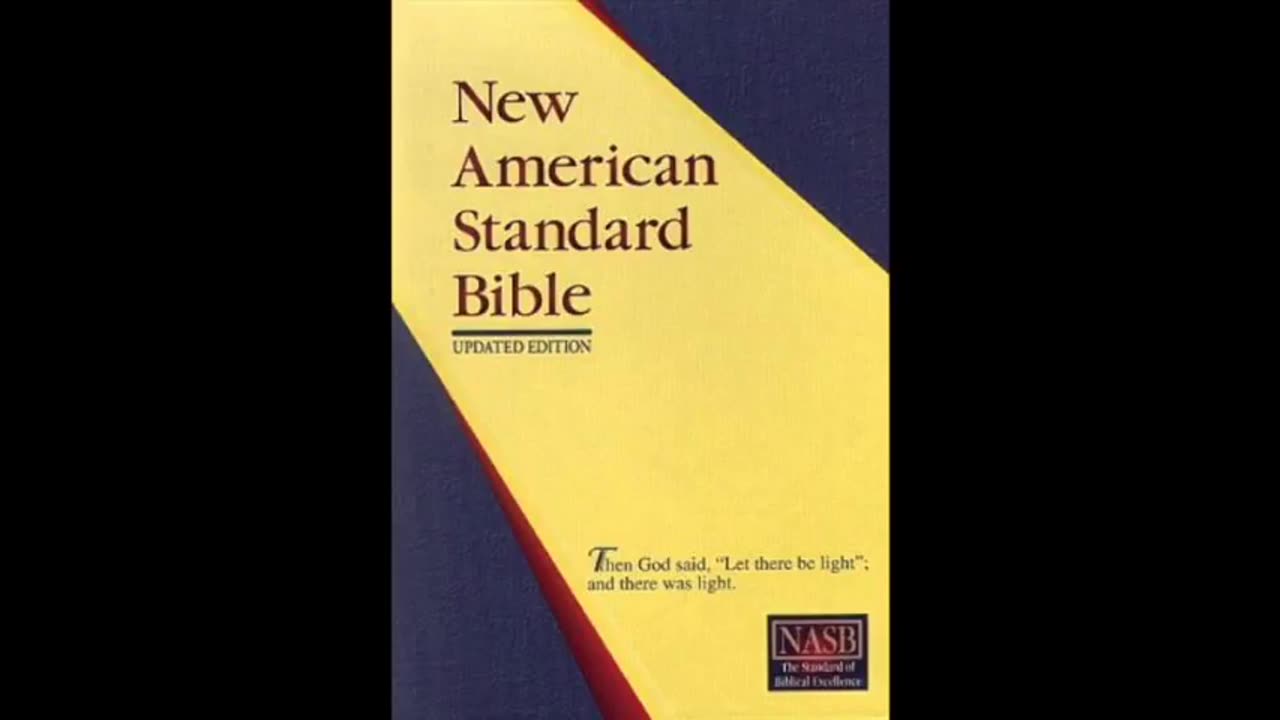Premium Only Content

The Book of 1st Kings (NASB Audio Bible Non Dramatized)
The book of 1st Kings is Narrative History and Prophecy. The author is anonymous; however, some suggest the prophet Jeremiah. It was written about 560-538 B.C. The key personalities are David, Solomon, Rehoboam, Jeroboam, Elijah, Ahab, and Jezebel. The purpose of 1st Kings is to contrast those who obey and disobey God throughout the ruling kings of Israel and Judah. The book describes the rule of Solomon as the last king of Israel and then the split of the kingdom after his death. It includes a great prayer to the Lord in chapter 8. The writer of the books of Kings describes the events of the Northern and Southern Kingdoms after the division.
In chapters 1-11, Solomon becomes the king, in a violent method, after his father David dies. David instructs Solomon to “walk in His (God’s) ways” (2:3). Solomon asks God for wisdom and God is pleased at this request and approves. Solomon begins a building production, which included the temple that his father David desired and prepared for him to do. He began building the temple 480 years after the Exodus from Egypt. Seven years later, the Ark was brought to the temple, the glory of the Lord descended on it, Solomon prays a powerful prayer, and then sacrifices were offered. Solomon although the wisest king ever, does not so wise things and begins to worship the gods of his wives and is subdued by his lust for women. His downfall was looming and he died shortly thereafter.
• Chapters 12-22 show the beginning of the end of the united kingdom of Israel.
The nation, with tough decisions to make chooses a wrong one. In 931 B.C., the kingdom splits in two: North and South. Rehoboam inherits the kingdom and is persistent about enforcing high taxes. The Northern tribes begin a revolt and Jeroboam is crowned king of Israel. Ten tribes became the Northern Kingdom of Israel and the two tribes of Judah and Benjamin became the Southern Kingdom of Judah. God raises up his prophet Elijah to warn evil king Ahab to turn from idol worship and to return to the YHWH.
-
 8:11
8:11
MichaelBisping
23 hours agoBISPING Reacts: 'Sign me UP!!' Charles Oliveira CALLS OUT Max Holloway for BMF TITLE FIGHT!
26.7K1 -
 12:38
12:38
NC Dirt Hunter
1 day agoIncredible Civil War relic sticking right out of the ground! Metal Detecting an old plantation.
15.4K2 -
 44:36
44:36
TheTapeLibrary
18 hours ago $2.65 earnedThe DARK Truth About the Pollock Family Tragedy
18.2K11 -
 1:11:01
1:11:01
The Charlie Kirk Show
11 hours agoTHOUGHTCRIME Ep. 70 — Seatgate? Best Executive Orders? Panda Express?
125K17 -
 2:04:23
2:04:23
Kim Iversen
15 hours agoINCREDIBLE: Trump RELEASES JFK Files & BANS Central Bank Digital Currency
172K210 -
 1:12:22
1:12:22
Side Scrollers Podcast
18 hours agoThe Real Game Awards: Official Live Stream
109K18 -
 59:48
59:48
The StoneZONE with Roger Stone
11 hours agoJanuary 6 Victim Jeremy Brown Still in Jail Despite Trump Pardon | The StoneZONE w/ Roger Stone
69.5K19 -
 1:45:44
1:45:44
megimu32
12 hours agoON THE SUBJECT: Make 90s Movies Great Again
55.2K10 -
 59:46
59:46
Man in America
19 hours agoAI mRNA Vaccines, Turbo Cancer & Blood Clots... What Could Go Wrong?! w/ Tom Haviland
65.6K87 -
 1:09:15
1:09:15
Precision Rifle Network
1 day agoS4E3 Guns & Grub - Trump a new era for gun rights?
94.7K9